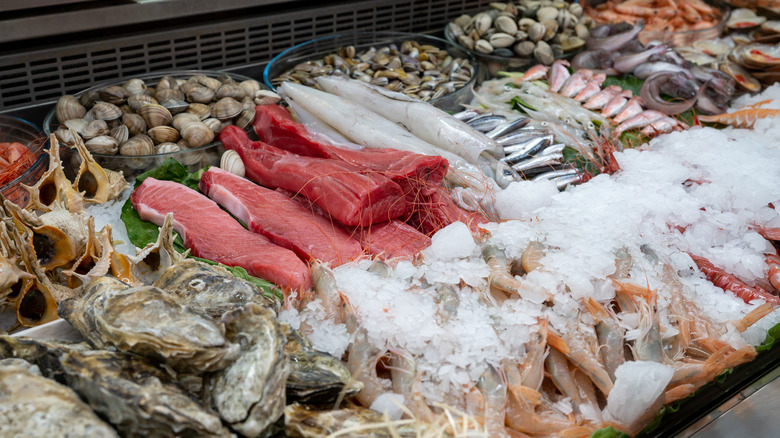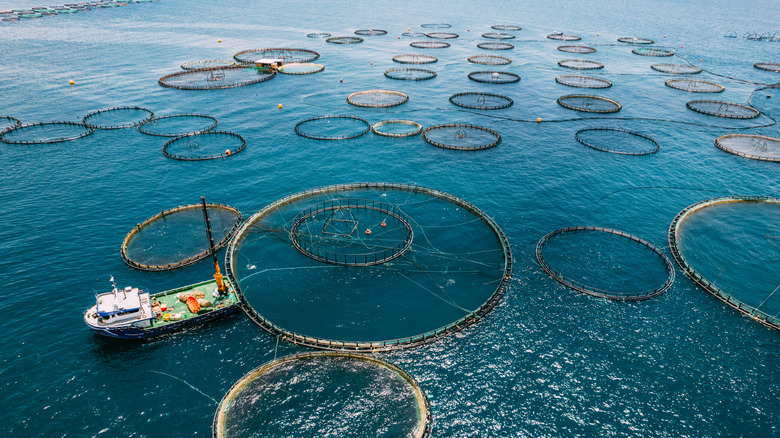Why You'll Never See Wild-Caught Organic Seafood At The Grocery Store
Your seafood counter at the grocery store can be confusing due to all the labels the fish are labeled with. Perhaps you're someone who prefers organic food but can't find wild-caught, organic seafood at the grocery store. It turns out there's a reason for it.
"Organic" is any kind of food that's raised or grown without chemical intervention. What organic food really means is that the food meets rigorous standards set out by the USDA. Fruit and vegetables must be grown without fertilizers and pesticides — even the soil must meet certain standards. Animals must be raised according to their natural behaviors, fed organic food, and be antibiotic- and hormone-free. When it comes to wild-caught seafood, however, the ability to verify any of the information needed for certification is nearly impossible.
The living conditions of wild-caught seafood like salmon are too much of an unknown to meet the standards of getting certified organic. In fact, the USDA doesn't actually have a process for certifying wild-caught seafood as organic. Even though a fresh, wild-caught Alaskan salmon swims in clean mountain streams, there's no way to verify what wild fish eat, which is one of the tenets of what makes a meat product organic. If you see seafood labeled as organic, it's probably imported, and instead follows international standards for certification.
So, is farm-raised seafood organic?
Farm-raised fish could be considered organic in the future, as the process is able to be controlled. There are still some caveats, which depend mostly on the diet of the fish and the fact that it's dealing with water, not soil. Vegetarian fish — tilapia, for example – may qualify for organic status, because there is organic feed available, albeit costly. Carnivorous farm-raised fish are harder to classify as organic because they eat other fish.
Farmed salmon eat fishmeal made of other fish like anchovies and other wild-caught fish, which the USDA can't prove are organic – or sustainably caught. Fish farms on land are more likely to receive an organic certification because of the ability to form a closed system where the water is recirculated and feed is able to be controlled, however they're more likely to be fed antibiotics. Open water fisheries are slightly more difficult to certify and use many of the same tactics as land-based farms, such as leeching antibiotics into the surrounding environment.
If you're looking to source seafood that's good for you and for the environment, keep in mind the recommendations of societies like Marine Stewardship Council, which monitors and certifies fishing operations for sustainable practices. Many species like yellowfin tuna, Atlantic cod, and Atlantic halibut are overfished and at risk of depletion. If you're looking for how to tell if your seafood is actually sustainable, wild-caught, or farmed, you're better off looking for something with the MSC blue fish label, which denotes sustainably sourced seafood.

